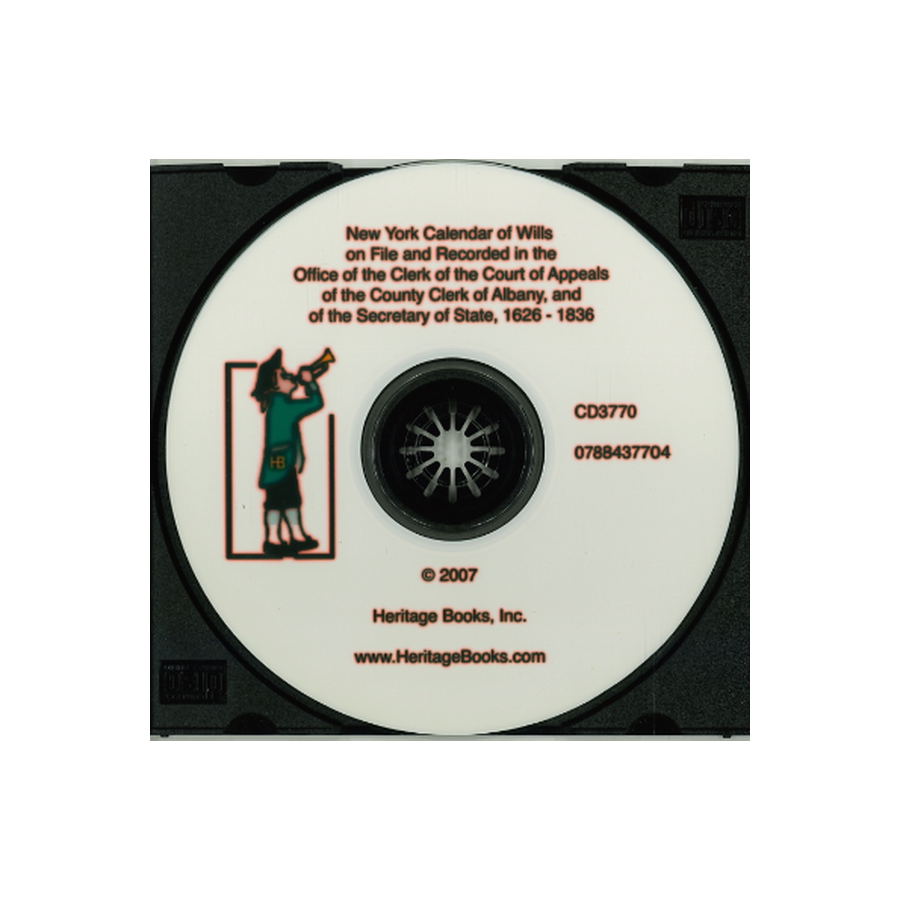CD-New York Calendar of Wills, 1626-1836
Couldn't load pickup availability
On File and Recorded in the Office of the Clerk of the Court of Appeals, of the County Clerk at Albany, and of the Secretary of State, 1626-1836
"It seems appropriate that a volume which gives abstracts of wills, made in Colonial days, as well as after the organization of the State, should have a history of the legal proceedings to which last wills were and are subjected…to tell what was done at different phases of the history of New York, to give legal force to the last wishes of a deceased person concerning his or her property." Roman-Dutch law allowed dispositions of property to be made either orally or in writing to a notary before two witnesses. Because both kinds of testaments were made before judicial officers, they did not require proof or probate, "which came in with the English occupation in 1664." Their Code of Laws said a will was to be proved in the Court of Sessions; at this time no distinction was made between proving and probating. In 1692 the first General Assembly of the Province passed a law regulating the proving of wills, the verification by the witnesses of the testator's signature and their own. By 1750 the Prerogative Court, later the Court of Probates, approved and allowed the proof of the will, then it was recorded. The Constitution of 1821 provided for the election of officers to perform the duties of Surrogate in the different counties and the Court of Probates was abolished. The abstracts of wills in this volume are arranged both alphabetically and chronologically. "To facilitate the finding of an original will the letter and number of each file is given with the date of execution and of proof."
Berthold Fernow
(1896), 2007, CD-ROM, Graphic Images, Searchable, PC or Mac, 672 pp.
ISBN: 9780788437700
101-CD3770
